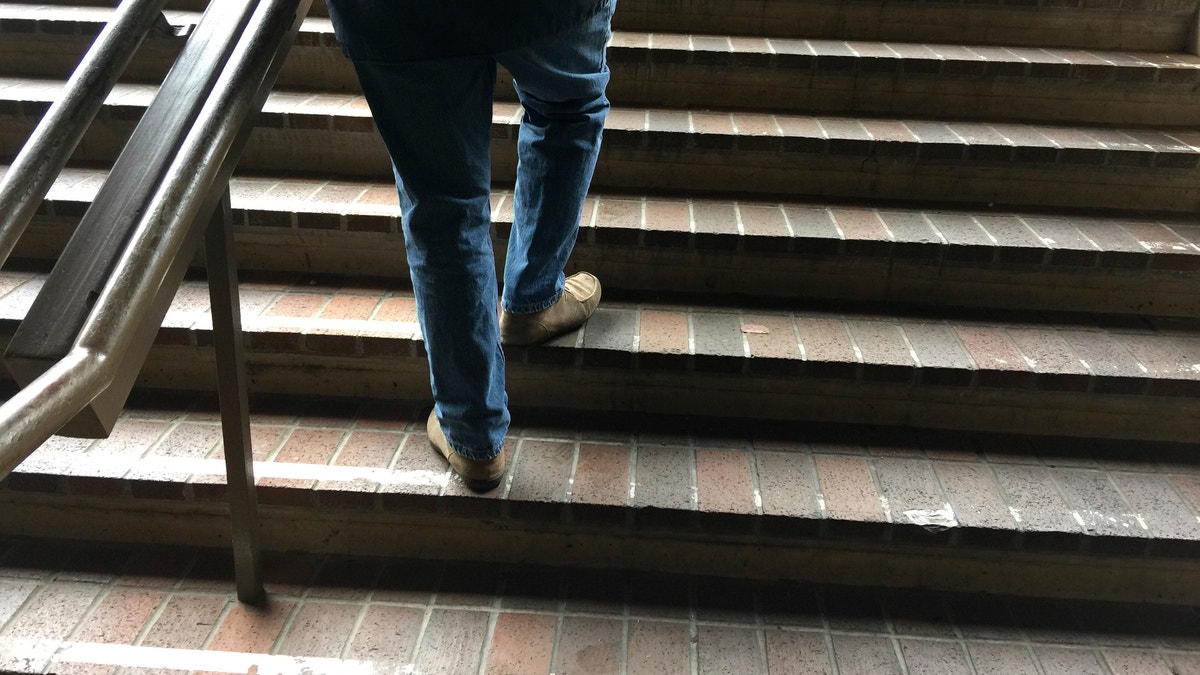
iStock
Checking how fast people can climb stairs before surgery might help predict their odds of complications after certain procedures, a recent study suggests.
Researchers asked 362 adult patients undergoing elective abdominal surgeries to climb up and down a flight of stairs before the operations and also measured how much their vital signs changed after completing the exercise compared to when they were at rest.
When people were slower on the stairs, they were more likely to experience spikes in blood pressure and heart rate, which may indicate stress from the exertion, the study team reports in the Journal of the American College of Surgeons.
The slowest patients were also most likely to have post-surgical complications, a finding that suggests this simple climbing test might be a good way for doctors to determine which people face the biggest risks from undergoing operations, said lead study author Dr. Sushanth Reddy of the University of Alabama at Birmingham.
"Our approach here was to come up with a simplified way to estimate risk," Reddy said by email.
"This is a simple test that takes just a minute or so to do," Reddy added. "The results can easily be explained to the patient and will make the conversation regarding the potential complications that much easier."
Among other things, one current formula surgeons use to assess pre-surgical risk includes questions like how many drugs patients take to manage hypertension, with the assumption that people who need four medications might face worse potential outcomes than patients who can keep blood pressure in check with just one pill, Reddy said.
Another common risk-assessment tool looks at patients' overall muscle strength, which can be accurate but cumbersome because it requires an expert trained in analyzing muscle density on a CT scan, Reddy pointed out.
To see if stair climbing ability could serve as an alternative tool for predicting risk of post-surgical problems, Reddy and colleagues asked people to walk up and down a flight of seven steps.
About 7 percent of them weren't up to the task.
For the remaining 338 patients who could get up and down the stairs, their average time was 18 seconds.
Overall, 84 participants had at least one complication within 90 days after surgery, while another 258 people had none.
Many patients with complications were overweight or had high blood pressure, diabetes or elevated cholesterol. The median age of people with complications was 65 years, compared to 59 among those without complications.
But the only factor that was associated with a statistically significant increase in the odds of complications was a slower speed on the stairs.
On average the stair climbing test took about 23 seconds for people who experienced complications after surgery, compared with 15 seconds for participants who didn't have problems after the procedures.
This amounted to about 11 percent higher odds of post-operative complications within 90 days after procedures for the people who were slow on the stairs before they went under the knife.
One limitation of the study is that the standard calculator for assessing post-surgical complications and deaths tends to follow people for just 30 days, making it difficult to compare this method to the alternative stair-climbing test that looked at 90-day outcomes, the authors note. The longer time range, however, may be a more accurate indicator of complications that can often crop up more than a month after patients have operations, the authors also point out.
"When people climb stairs, they have to use more cardiac function; a longer timed stair climb test then suggests that patients have poorer physiologic function," said Dr. Nita Ahuja of Johns Hopkins University in Baltimore.
"The timed stair climb test is a metric of frailty and as the population is getting older, it is important to identify frailty," Ahuja, who wasn't involved in the study, added by email. "The timed stair test is an easy to perform test that can be done quickly and doesn't require additional costs."
